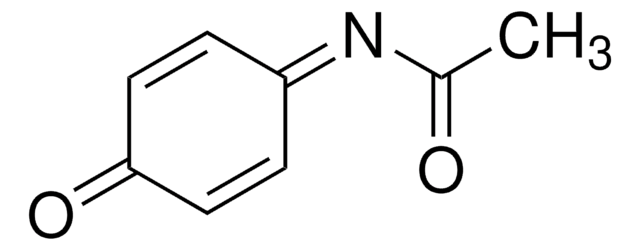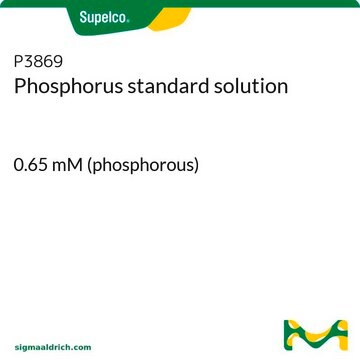A7302
Ammonium molybdate tetrahydrate
ACS reagent, 81.0-83.0% MoO3 basis
Synonym(s):
Ammonium heptamolybdate tetrahydrate, Molybdic acid ammonium salt tetrahydrate
About This Item
Recommended Products
grade
ACS reagent
Quality Level
Agency
suitable for SM 5210
Assay
81.0-83.0% MoO3 basis
form
crystalline
reaction suitability
reagent type: catalyst
core: molybdenum
impurities
≤0.005% Insoluble matter
density
2.498 g/mL at 25 °C (lit.)
anion traces
arsenate, phosphate, and silicate (as SiO2): ≤0.001%
chloride (Cl-): ≤0.002%
nitrate (NO3-): passes test (limit about 0.003%)
phosphate (PO43-): ≤5 ppm
sulfate (SO42-): ≤0.02%
cation traces
Mg: ≤0.005%
heavy metals: ≤0.001% (as lead)
storage temp.
room temp
SMILES string
N.N.N.N.N.N.O.O.O.O.O=[Mo](=O)=O.O=[Mo](=O)=O.O=[Mo](=O)=O.O=[Mo](=O)=O.O[Mo](O)(=O)=O.O[Mo](O)(=O)=O.O[Mo](O)(=O)=O
InChI
1S/7Mo.6H3N.10H2O.18O/h;;;;;;;6*1H3;10*1H2;;;;;;;;;;;;;;;;;;/q;;;;3*+2;;;;;;;;;;;;;;;;;;;;;;;;;;;;;;;;;;/p-6
InChI key
FIXLYHHVMHXSCP-UHFFFAOYSA-H
Looking for similar products? Visit Product Comparison Guide
General description
Application
- A molybdenum source in the synthesis of sodium molybdate dihydrate (Na2MoO4·2H2O).
- A molybdenum source in the synthesis of nickel molybdate nanorods (NiMoO4) by co-precipitation method in the presence of nickel benzoate as a nickel source.
- A precursor in the synthesis of Mn-MoS2 (MMS). MMS is employed in the production of MMS/rGO (reduced graphene oxide) composite that exhibits the highest rhodamine B (RhB) degradation efficiency.
- A catalyst in the synthesis of PVDF (polyvinylidene fluoride) catalytic microcapsules. PVDF is a heterogeneous catalyst for the selective oxidation of benzyl alcohol to benzaldehyde.
Quality
Storage Class Code
11 - Combustible Solids
WGK
WGK 1
Flash Point(F)
Not applicable
Flash Point(C)
Not applicable
Choose from one of the most recent versions:
Certificates of Analysis (COA)
Don't see the Right Version?
If you require a particular version, you can look up a specific certificate by the Lot or Batch number.
Already Own This Product?
Find documentation for the products that you have recently purchased in the Document Library.
Customers Also Viewed
Protocols
To measure glucose-6-phosphatase activity, the Taussky-Shorr method is used. This method is a spectrophotometric stop-rate determination assay that is measured at 660 nm.
To measure glucose-6-phosphatase activity, the Taussky-Shorr method is used. This method is a spectrophotometric stop-rate determination assay that is measured at 660 nm.
To measure glucose-6-phosphatase activity, the Taussky-Shorr method is used. This method is a spectrophotometric stop-rate determination assay that is measured at 660 nm.
To measure glucose-6-phosphatase activity, the Taussky-Shorr method is used. This method is a spectrophotometric stop-rate determination assay that is measured at 660 nm.
Related Content
This page is intended to make it easier to find the consumables you need based on the analytical method you’re using. Methods included on this page come from the EPA, Standard Methods and ASTM.
This page is intended to make it easier to find the consumables you need based on the analytical method you’re using. Methods included on this page come from the EPA, Standard Methods and ASTM.
Our team of scientists has experience in all areas of research including Life Science, Material Science, Chemical Synthesis, Chromatography, Analytical and many others.
Contact Technical Service







